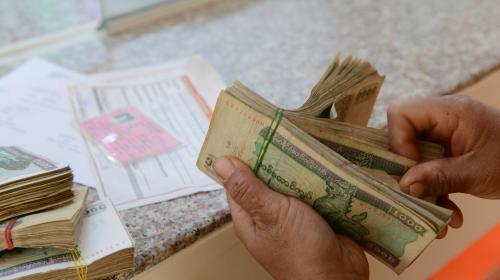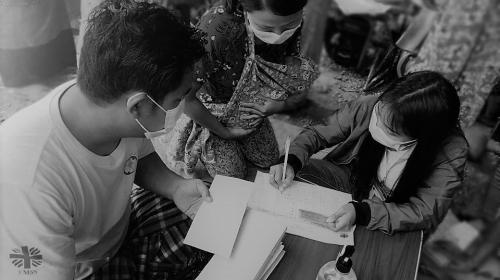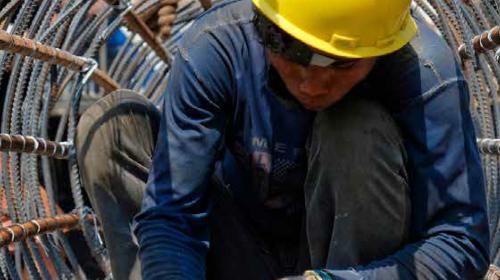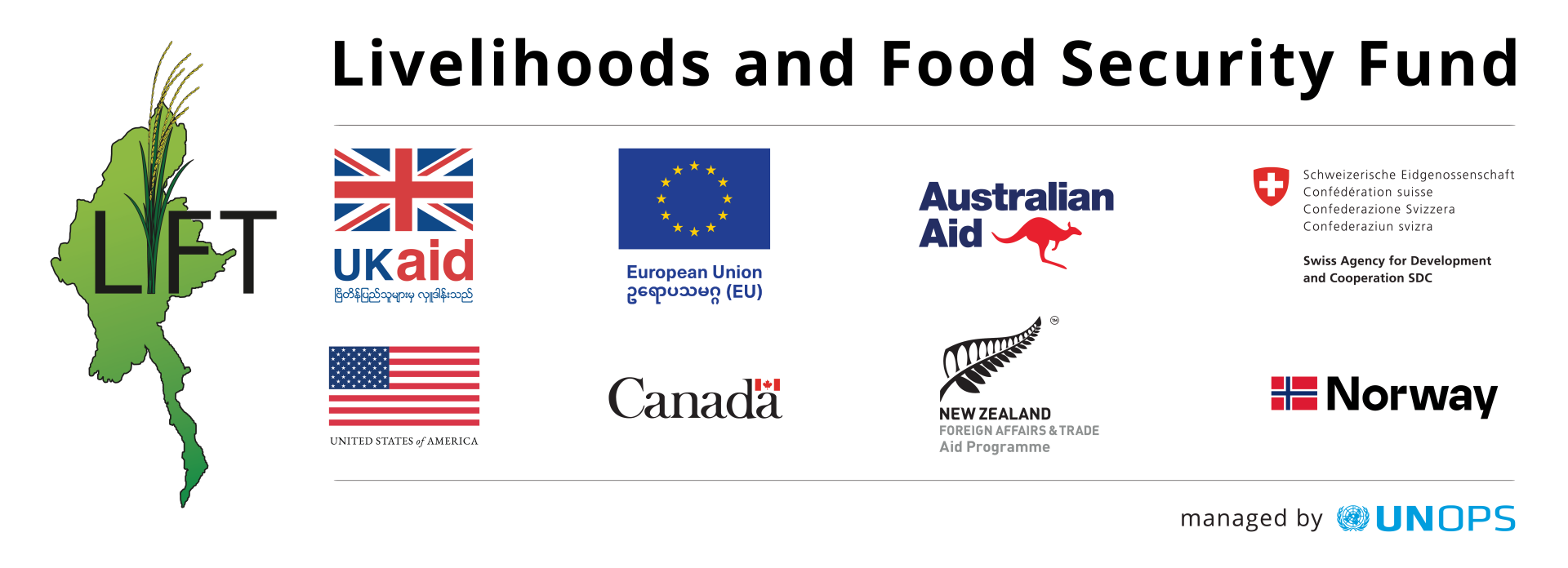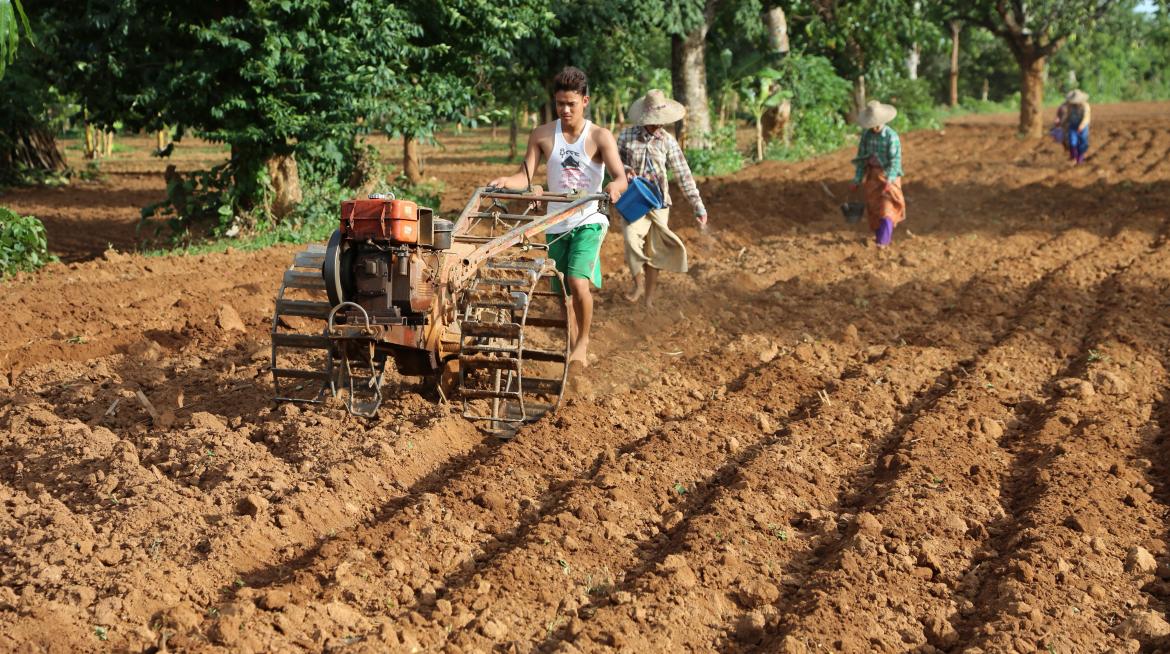
2015 has been a busy year for LIFT and its partners. With new funds committed from our donors, we have launched no less than six new programmes. There are new phases for our current Delta, Rakhine, Uplands and Dry Zone programmes, as well as two themed programmes for migration and financial inclusion.
To add to the activity, in late July Myanmar suffered under severe flooding. LIFT’s response to re-establish livelihoods and food security was swift, with activities funded to $1.3 million taking place by early September.
LIFT also continued its standard work with a large number of on-going projects, some extending their term of tenure and others coming to a natural close at the end of their three year life.
All of LIFT’s programmes are designed to support Myanmar’s rural transformation, ensuring that it is inclusive. LIFT is creating a variety of opportunities for smallholder farmers and marginalized rural people to be part of the country’s rural development, and to become more resilient to shocks and setbacks.
Status update on LIFT’s new programmes
1. LIFT considers that extensive access to finance is essential to Myanmar’s rural growth. Calls for proposals opened in February with the Financial Inclusion Window, to the value of $44.5 million. Seven projects have been approved with contracting now well underway. In July, a prospective list of townships where Financial Inclusion activities will occur was made publically available. Through this call, LIFT will engage with new partners to broaden the the scope and range of financial services available to smallholder farmers, small businesses and the rural poor. The programme’s formal launch will take place in January 2016.
2. In March, LIFT announced the Delta 3 programme with a Delta 3 programme framework and call for proposals to a value of $16 million. Delta 3 will build on the impact of LIFT's experience over the past four years. Most contracts are now signed, and the programme will be formally launched in Yangon and in the Delta at the end of January 2016.
3. In May, the Dry Zone project framework and call for proposals were launched, to the value of $21 million. Again, the new programme will build on lessons and is designed to provide new and diverse production and income opportunities that increase the resilience of rural poor households at village, township and regional levels. The programme will also generate evidence to inform policy. Four partner projects have been selected to work in six townships. Additionally, LIFT is expected to sign a livestock project with FAO. A workshop for implementing partners (and financial inclusion partners operating in the Dry Zone) will take place in early January.
4. The Rakhine programme was reviewed earlier in the year, with Fund Board decisions to make changes to the management arrangements of the Tat Lan programme, and to extend activities within Rakhine.
- In July, Tat Lan partners were asked to provide proposals for a revised approach, in view of the midterm review. New contracts for Tat Lan Phase 2 will be signed by the end of the year with existing partners CARE, the International Rescue Committee, Save the Children, Oxfam and Better LifeOrganisation, for a 1st January 2016 start. In Tat Lan 2, nutrition will be scaled up from its small pilot in Tat Lan 1, with WASH being introduced to complement this component. The acreage of land available for agricultural use will also significantly increase. Embankment construction/ rehabilitation will continue to prevent salt water intrusion to cropping land.
- Financial inclusion and vocational training components are under consideration for the Rakhine programme.
5. In July, the Uplands programme was launched with a call for concept notes to the value of $42 million. LIFT has now selected a number of IPs to submit calls for proposals in a closed process. The Fund Board has selected seven target areas for this programme.
6. In August, the last programme to be launched was the migration programme. The initial call looked for a lead agency to provide technical support and policy input. There will be a subsequent call at the beginning of 2016 to identify project partners who will do the groundwork.
The total value of these calls is about $171.5 million.
There are three other important developments to note:
There is increased engagement with the private sector. The Fund Board has recently approved a set of principles to inform and guide LIFTs engagement with the private sector. LIFT has three important private sector partnerships in advanced stages which are expected to be signed by the end of the year.
LIFT is also working on setting up small grant schemes, which will serve to support civil society organisations through allocations of the Delta, Dry Zone and Uplands programmes. It is expected that the small grant schemes will be set up in the New Year.
LIFT has increased its focus on gathering evidence to influence pro-poor policy development. “All LIFT activity needs to have a dimension of policy influence, and this is something that all our new partners and programmes need to consider when designing activities,” said Lead Technical Officer, Steve Dowall. “In the Uplands, for example, it’s likely that one of LIFT’s priority policy areas will be land tenure. Our partners will build an evidence base to advocate for policy improvements.The key is that LIFT promotes a policy environment across all areas of its activity that is conducive to long term rural economic development, and which addresses the fundamental issues of poverty, food security and nutritional needs."
If you have any questions about the status of LIFT’s new programmes, please write to us at info@lift-fund.org

